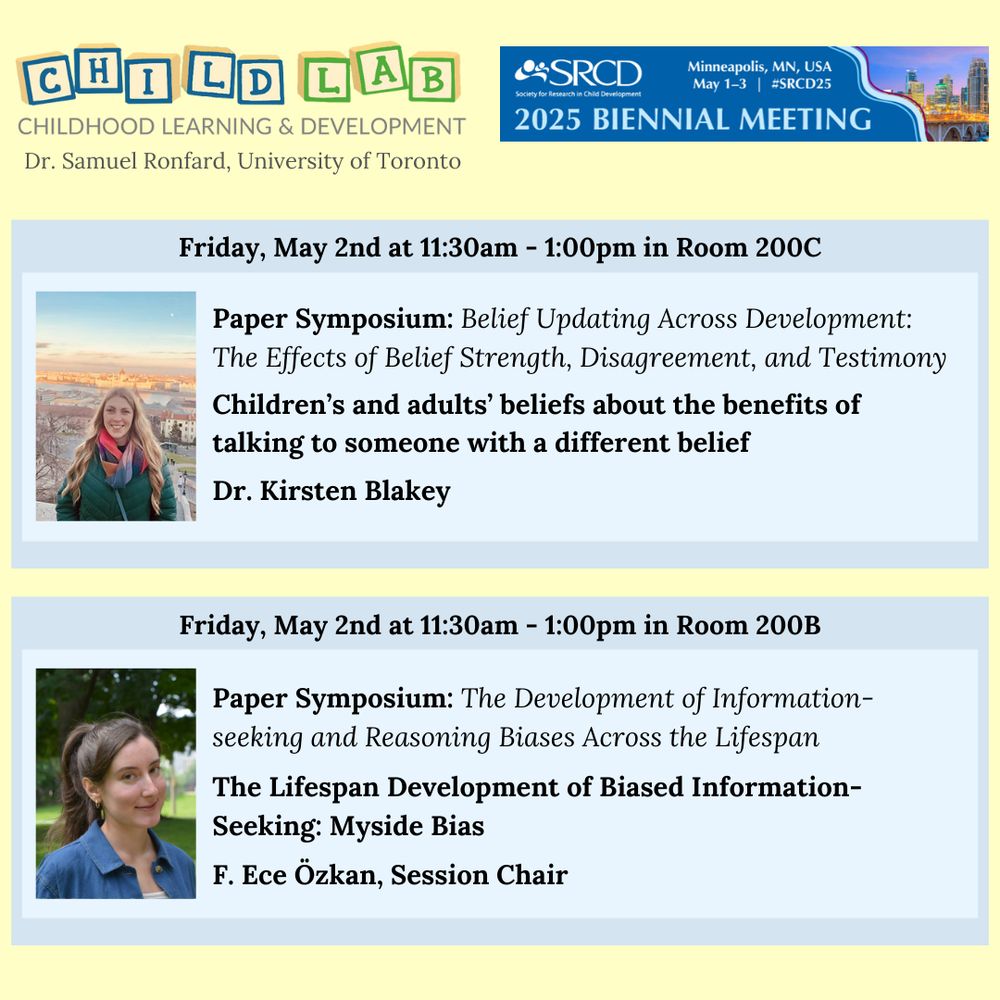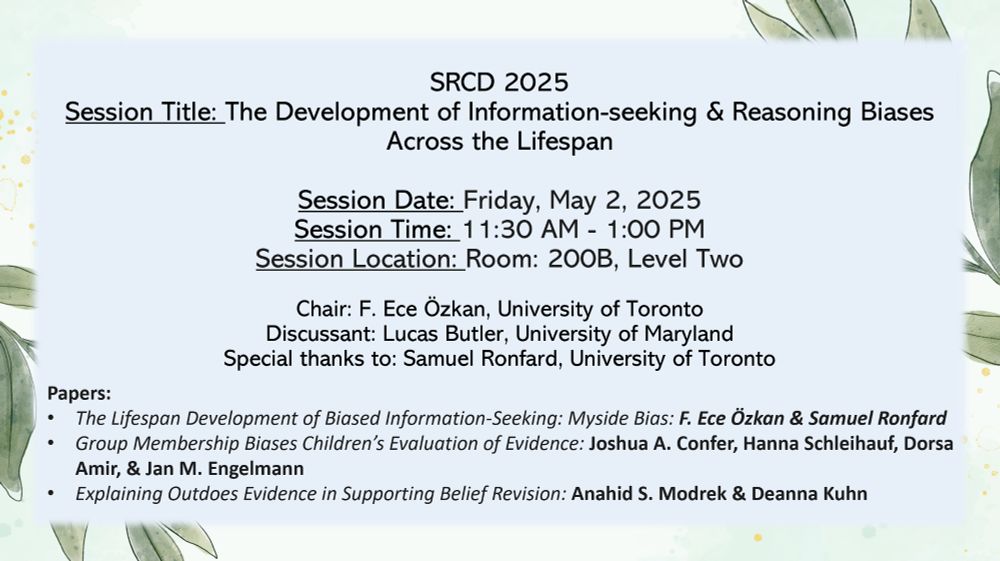
Nonverbal rationality? 2-year-old children, dogs, and pigs show unselective responses to unreliability but to different degrees
Open access here: doi.org/10.1111/cdev...

Nonverbal rationality? 2-year-old children, dogs, and pigs show unselective responses to unreliability but to different degrees
Open access here: doi.org/10.1111/cdev...

We develop a framework for understanding how reflective belief revision could emerge from unreflective responses to evidence, integrating epistemology and developmental psychology.
Epistemic Rationality Begins Unreflectively
link.springer.com/article/10.1...
#DevPsych #Epistemology

We develop a framework for understanding how reflective belief revision could emerge from unreflective responses to evidence, integrating epistemology and developmental psychology.
Epistemic Rationality Begins Unreflectively
link.springer.com/article/10.1...
#DevPsych #Epistemology


statmodeling.stat.columbia.edu/2025/01/16/w...

🧵 5/6

doi.org/10.1037/dev0...
Here is what we found...👀
🧵1/6
doi.org/10.1037/dev0...
Here is what we found...👀
🧵1/6

